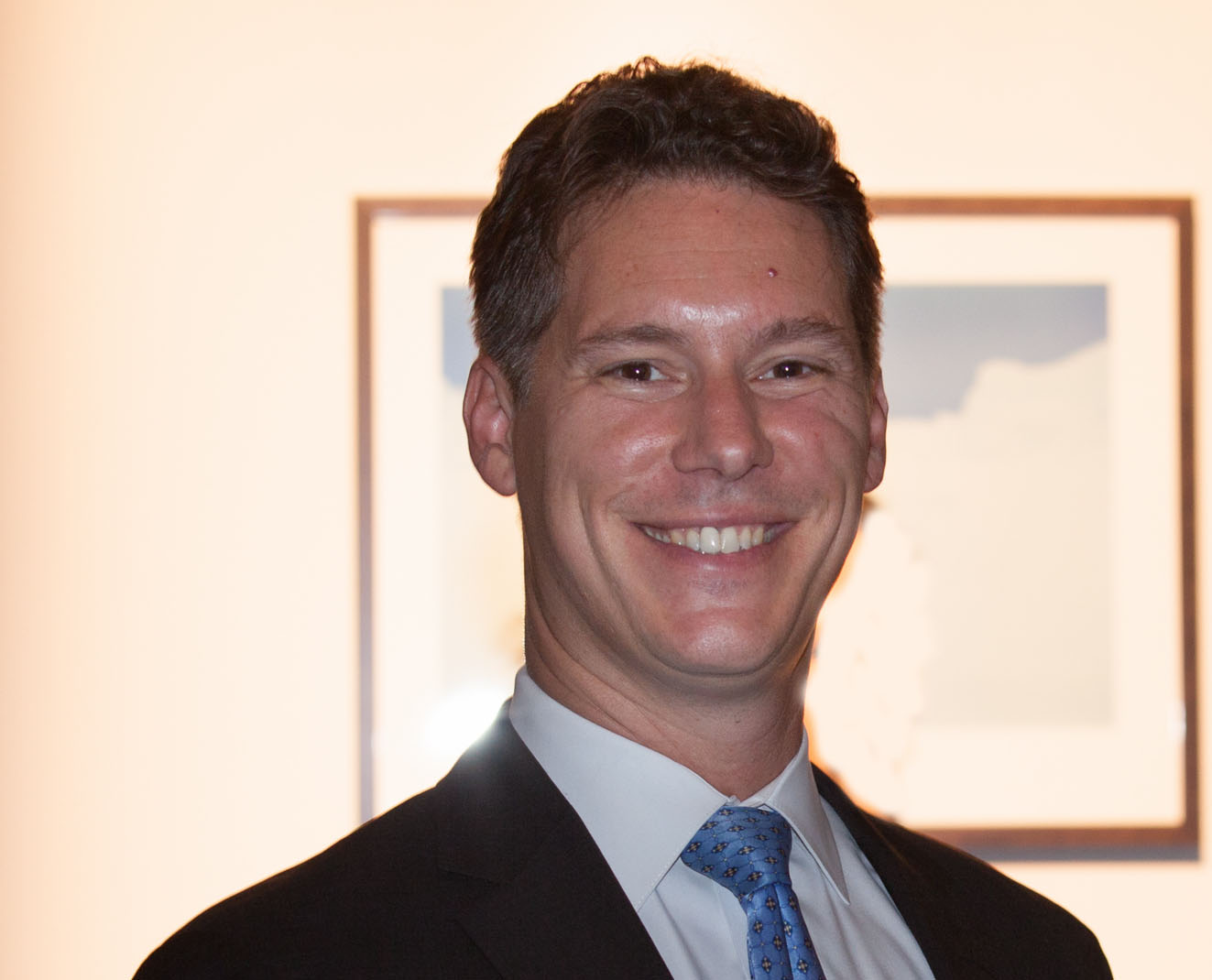By Kristen Weiss
Whit Saumweber has sailed the Atlantic Ocean as a science educator on tall ships, studied the ecology and physiology of zooplankton, and rubbed elbows with key politicians in D.C. where he helped develop innovative ocean policy. Now, he joins the Center for Ocean Solutions as a visiting fellow, where he will collaborate with COS staff on research relating to the National Ocean Policy and regional level ocean planning. He has also been named a Consulting Professor at the Stanford Woods Institute for the Environment.
Until joining COS, Saumweber was most recently serving as a Program Manager and Policy Advisor at the National Oceanic and Atmospheric Association (NOAA) in their Office of Coastal Management in D.C. and previously as the Deputy Associate Director for Oceans and Coasts with the White House Council on Environmental Quality., In these positions, he helped to implement key components of the National Ocean Policy, enacted by executive order from President Obama. Saumweber got his start, however, in ocean science—he received his PhD in biological oceanography from the University of Rhode Island.
“It was kind of a far cry from what I’m doing now,” laughs Saumweber, “but even though I was conducting foundational science on zooplankton while in grad school, our research team was applying it to important issues like fisheries management.”
Saumweber has spent a lot of time on the water conducting research—but even before grad school, he was sailing up and down the eastern Atlantic, from the Bay of Fundy to South America, as a crew member (or “schooner bum” as he fondly calls it) and science educator on several tall ships.


“The most important thing was being connected to the sea in such a physical way, being connected to something so much bigger than myself,” Saumweber says. “That was a time in my life I often think back to. Experiencing the ocean first hand is really important—you need to be out there in the big blue to really appreciate it. “
Saumweber became interested in the link between science and ocean policy during his time as a graduate student. “I began to think about ways to ensure that science is being used well in the formulation of policy,” he explains. He jumped at the opportunity to serve as a Knauss Congressional Fellow in D.C. shortly after finishing his PhD. As a Knauss Fellow, Saumweber gained valuable experience working with Senate committee staff on issues related to fisheries management, marine pollution, coastal hazards, and social-ecological resilience.
Since that initial foray on Capital Hill, Saumweber has continued down the path of ocean policy. His goal throughout the last two decades has been to improve the stewardship of our oceans and coasts by using science to support a more informed public discourse and improved public policy. He brings extensive experience across the Federal government, working in Congress, the White House, and Agencies, leading and coordinating strategic ocean and coastal policy initiatives that engage a broad range of participants and stakeholders.
As a Visiting Fellow, Saumweber will combine his expertise with that of COS staff to identify ways to help accomplish the goals of the National Ocean Policy, particularly by supporting ocean planning in the West Coast Region and helping build capacity and provide scientific resources to ocean policymakers.
“That’s always been my passion—figuring out how to do good science that’s then translated into policy,” says Saumweber. “And that is the Center for Ocean Solutions’ reason for being. I hope during my time at COS to help identify where we can build on successes of the National Ocean Policy and carry those into the next presidential administration.”
While still based in Washington D.C., Saumweber will make several trips to COS’ Monterey and Stanford offices throughout his fellowship. One of the issues he hopes to focus on is how to help managers incorporate climate change adaptation and mitigation measures into their regional ocean planning processes. As Saumweber explains, with a changing climate “there will be a lot of stressors compiling for coastal ecosystems, so we need to have ways built into our management process that build resilience into both ecosystems and coastal communities.”
He is particularly interested about how large-scale ecosystem dynamics will shift under a changing climate. He cites the ‘big warm blob’—the patch of unusually warm water that’s been sitting off the west coast of North America for the last several months—as an example of the kinds of changes we are likely to see more frequently in the future.
“These issues are interesting to me because they are going to have widespread impacts far beyond for people and communities as well as the underlying ecosystems,” Saumweber says.
Despite his strong interest in creating sound ocean policy, Saumweber is still a scientist at heart. “Wearing my science hat, I am really jazzed about ocean exploration,” he beams. “people sometimes struggle to justify pure science or exploration, but it’s is so important because there is still so much we don’t know and where it might lead.”
He also enjoys sharing his love of the ocean and outdoors with his four-year-old son, who he takes to the beach frequently. “He loves getting dirty and wet, so we try to get out and have fun as much as possible!” Saumweber laughs.
At COS, Saumweber is looking forward to getting back to his academic roots. “While I really enjoed working within the Federal government,” he says, “I’m excited to have this chance to work in the creative environment here at COS with people who really think outside the box.”
We welcome Whit Saumweber to COS and look forward to the valuable experience and perspective he will bring to our team in the years ahead.
Photocredit: Whit Saumweber




